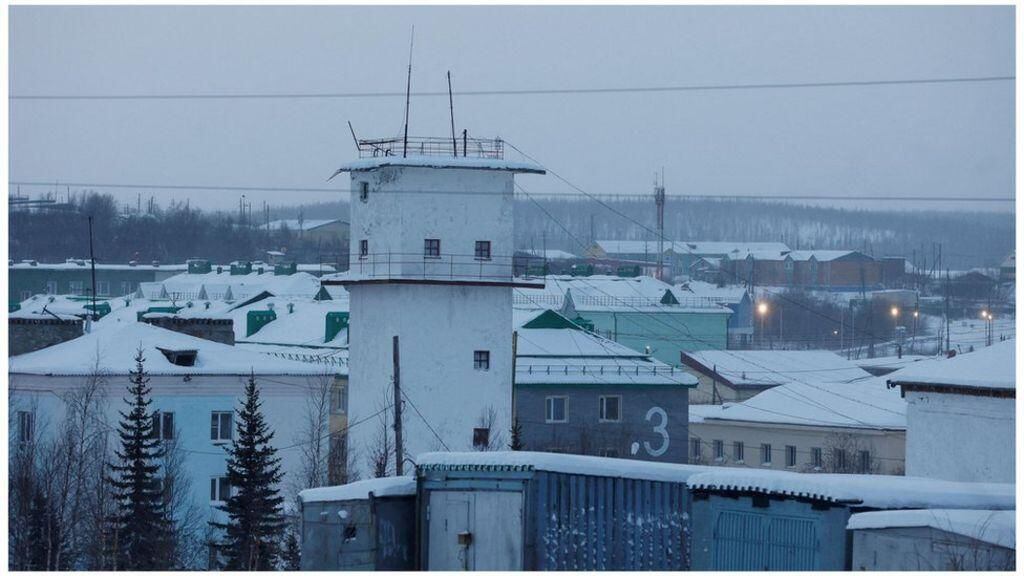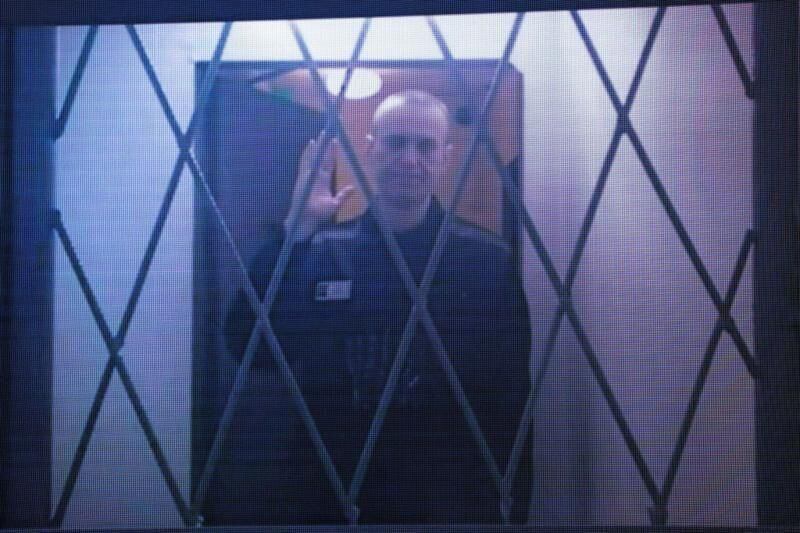The penal colony where the opponent was detained Alexey Navalny, who died this Friday, is the strictest that exists in Russia. Only those accused of the worst crimes are sent to the so-called IK-3.
Also known as “Polar Wolf”is located in the Yamalo-Nenets region, high above the Arctic Circle.
LOOK: Who was opposition leader Alexei Navalny, the critic who accused Putin of “sucking Russia’s blood”
The conditions, needless to say, are very harsh.
It is known for its culture of collective punishment. And the average temperature in winter is -20°C.
Prisoners described how they are punished for the mistakes of others, forcing them to remain outdoors in winter without shelter. Those that do not stay still are sprayed with cold water.
Snow covers the ground for months, being replaced by mud when temperatures rise above freezing around May.
In the summer, prisoners are forced to be naked to the waist and be exposed to swarms of mosquitoes.
With summer come long days that have no night. All of this has a high physical cost.
The daily life of Navalny, whose death was announced by the Russian government on Friday, It will probably have been lonely since arriving at IK-3 in December. Before that, he was in the IK-6 prison in Melekhovo, east of Moscow.
Almost passed 300 days in solitary confinement and lately he was permitted to walk daily in a nearby cell, where the floor was covered with snow.
All he could see outside the window was a tall fence without any lights. In winter, in the Arctic Circle, there is, at best, night light.
Your fight from there
With years of prison time ahead of him, Navalny had to look for ways to stay relevant.
He filed complaints about prison conditions, which allowed him to appear in court and make statements on camera with regularity. He tried to create a prisoners’ movement to campaign for better jobs in the prison’s sewing factory.
He made noise so they wouldn’t forget him.
He was known for his sharp intelligence. He always tried to minimize his situation, no matter how harsh the conditions.
Through messages on social media and writings released by his lawyers, he spoke about the conditions in which he was detained, often with more humor than many thought possible.
He described New Year’s Day in the punishment cell by saying, “It’s like any other day: I wake up at 5 p.m. and go to bed at 9 p.m. So for the first time since I’ve been in prison, I can’t sleep.” For the first time since I was six, I slept through New Year’s Eve. Overall, I’m happy. People pay to celebrate the New Year in an unusual way, but I did it for free.”

Effects on mental health
But your day to day life must have been very difficult.
In January 2023, he wrote that he had received a new cellmate with serious mental health problems.
“There are many videos on the Internet about people who believe they are possessed by demons and devils,” he said.
His cellmate was “very similar,” he explained: he gave “a guttural, grunting scream that doesn’t go away for hours once he starts it.” He screams 14 hours a day and three hours at night.”
On another occasion, they made him share a cell with a person who had “serious” hygiene problems.
“If you live in a cell and one person lives an arm’s length away from you 24 hours a day, and you are both within a meter or two of the bathroom 24 hours a day, and the bathroom is a hole in the floor, Maintain hygiene is of fundamental importance. And a prisoner who is problematic in this sense will instantly make his life unbearable.”
Your health deteriorated
Navalny He was sure that none of his cellmates had arrived by chance. He believed they were just another way for the Russian prison system to make an inmate’s life hell if he wanted to.
At 47, he was not old, but being poisoned with the nerve agent Novichok and spending three weeks in a coma took its toll on him. Living a life of constant deprivation in prison only made the situation worse.
In December, he declared that he had 18 months without being able to go to the dentist.
had also developed serious back problems and lately he had difficulty walking and standing. One of his legs was numb, possibly due to a herniated disc.
Despite his smiles and his relaxed appearance in court, he appeared more haggard with each appearance.
In 2023, more than 500 Russian doctors signed an open letter demanding that he be examined by a civilian doctor, after he stated that he suffered from a cough and fever and had to share a cell with a prisoner with tuberculosis.

Russian prisons have a long history of torture, both physical and psychological. Inmates are often mistreated by inmates who are “friends” of the administration, and unenforceable rules increase mental anguish.
The Russian federal prison system itself estimates that there have been between 1,400 and 2,000 deaths per year in prisons since 2018. The number one cause is invariably attributed to heart problems.
Lawyers do not believe this explanation. “They can pass off anything as cardiac arrest, even suicide or murder at the hands of other prisoners or guards,” says lawyer Irina Birykova.
In his experience, it is almost impossible to overcome the obstacles created by the prison system if authorities do not want the cause of death to be independently verified.
Blow for hope
Navalny’s death meant a strong beat for Russians who saw him as an emblem of resistance.
It was clear that he could no longer lead the Russian opposition, but there was still hope that one day the political situation would change and Navalny could reappear.
If Vladimir Putin ever needed to negotiate his own freedom or security, Navalny could have been part of the deal.
Most Russians agree that now there is little hope in the protest. People will try to commemorate his death in their own way, placing flowers in the places where Navalny was.
Some brave people will even take to the streets, but they will be punished.
If the shock that followed Russia’s invasion of Ukraine failed to bring the masses to the streets, neither will Navalny’s death.
But privately, many Russians are in mourning. For them, this will be just another dark day of lost hope.
Source: Elcomercio
I am Jack Morton and I work in 24 News Recorder. I mostly cover world news and I have also authored 24 news recorder. I find this work highly interesting and it allows me to keep up with current events happening around the world.

:quality(75)/cloudfront-us-east-1.images.arcpublishing.com/elcomercio/AMWN2P74AVCSZFX63E44SIR624.jpg)




:quality(75)/cloudfront-us-east-1.images.arcpublishing.com/elcomercio/MYTLUZLMGJEWBLDKIYPDHE5C6Q.jpg)
